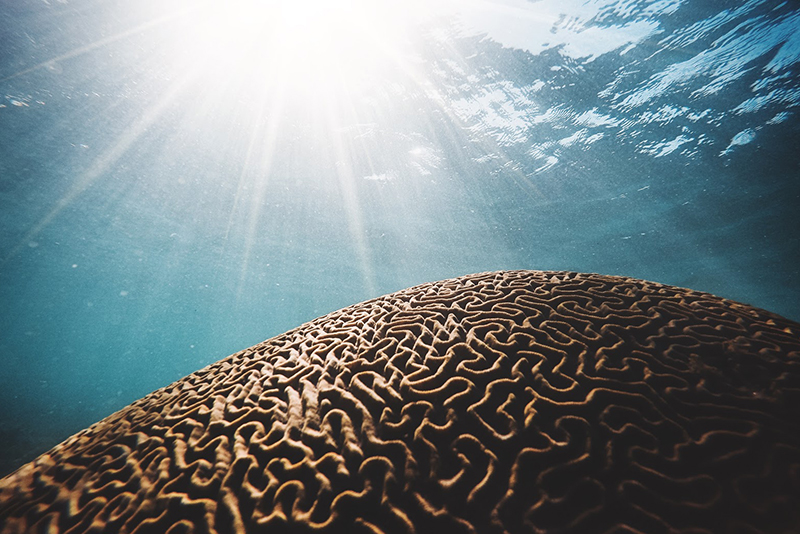Why Do We Sleep – The short answer is that we cannot survive without it. Sleep is as essential to human existence as food, water, and air. It is a natural process in which our mind and body recharge itself. Without adequate sleep, we cannot function properly. Staying awake for a consecutive amount of time – about 11 days – will cause death. Scientists have conducted many tests over the years to determine if there are any similarities in the effects of lack of sleep. Even with all these tests, understanding sleep is still a bit of a mystery [1].
Though no one would go to that extreme willingly, sleep deprivation, even sporadically, is a real issue. A good night’s rest can relieve sleepiness. Without it, we find ourselves feeling groggy and out of sync with our body. Sleep is crucial to our health for a myriad of reasons.
Stages Of Sleep
Reasons Why We Need Sleep
The Consequences Of Lack Of Sleep

Why Do We Sleep – Stages Of Sleep
People who experience severe sleep deprivation tend to have underlying sleep disorders that affect their overall health. One reason why sleep is difficult to understand is that the brain may be functioning differently when it enters the two stages of sleep.

Why Do We Sleep – Non-REM Sleep
Non-REM sleep, or NREM sleep, is characterized as having slow brain waves which are referred to as delta and theta waves. In this stage, growth hormone is being released, brain proteins increase, and the genes involved in the synthesis of protein become highly active.

Why Do We Sleep – REM Sleep
During rapid eye movement (REM) sleep, no significant changes, such as an increase in brain activity, were noticed [2].
Sleep experts are looking into unihemispheric sleep where one side of the brain is asleep while the other is awake and alert. This is common in many mammals who are able to respond to danger even when they are sound asleep. Though not as defined, it appears that humans have a similar ability. When dreaming, we can abruptly emerge from sleep if startled.
Stages Of Sleep
Reasons Why We Need Sleep
The Consequences Of Lack Of Sleep

Reasons Why We Need Sleep
Most people see sleep as a time where our minds and bodies shut down. This is not actually the case. Even when we are asleep, our minds are still active as they process the information we have gathered during the day, restore what we lost while awake, and strengthen our bodies by repairing cells.
Researchers are still far from discovering what programs our body to sleep for hours, but they have many reasons as to why we need sleep in the first place.

Why Do We Sleep #1 – Sleep Solidifies Memories
Our brain is an amazing and complicated organ capable of absorbing and understanding a plethora of information throughout the day. However, the brain stores thoughts first to be processed later.
As we sleep, the short-term memories that we have created throughout the day are then transferred to long-term memory through consolidation. This is why we retain information better after getting a good night’s sleep [3].

Why Do We Sleep #2 – Sleep Removes Toxins
The brain’s waste removal system is more active during sleep. The process of sleep restores the brain by removing naturally occurring waste proteins called beta-amyloid. According to research conducted by Professor Maiken Nedergaard from the University of Rochester Medical Centre in New York, sleep may flush toxic proteins that build up in brain tissue [4].

Why Do We Sleep #3 – Sleep Promotes Recovery
Sleep is believed to be the time where the cells in our body repair themselves from the damage caused during waking hours.
Mammals that have high metabolism rates tend to sleep for several hours. Larger animals, humans included, get by with seven to eight hours of sleep. It is believed that we enter this resting stage so our energy reserves can be replaced and replenished [5].

Why Do We Sleep #4 – Conserves Energy
As we go to sleep, we are helping our body rest and conserve energy. It is during this phase when our lungs and heart do not work as tirelessly as when we are awake. This gives our organs a vital recharge [6].

Why Do We Sleep #5 – Sleep Improves Immune Function
Our circadian rhythms play a part in our sleep-wake cycle and improve our immune functions.
As mentioned before, it is during this rest period where our bodies repair themselves. It is also during sleep when our immune systems improve themselves to protect our health and well-being [7].

Why Do We Sleep #6 – Sleep Burns Calories
Did you know that sleep may help us consume fewer calories?
Sleeping an extra two hours burns around 300 calories. This may be because when we’re sleeping we’re not eating which allows for the body to burn excess energy.
A study conducted at the Hendrix College in Arkansas showed that those who slept for two hours longer ate less thus reducing their calorie consumption up to 300 [8].
Stages Of Sleep
Reasons Why We Need Sleep
The Consequences Of Lack Of Sleep

The Consequences Of Lack Of Sleep
Understanding the function of sleep is incredibly valuable to our overall health. For some, sleep deprivation is a common occurrence, but constantly interrupting the sleep cycle can be dangerous. When we become sleep deprived, it affects us in a multitude of ways.

Mood Swings
Not being able to sleep well can affect our moods during the day. Some of us become irritable, short, and even indifferent.

Cognitive Function Slows
Cognitive function is also affected by a lack of sleep. Problem-solving, memory retention, recall, and focus can all decline when we are robbed of deep sleep or slow-wave sleep at night. Productivity and creativity levels are compromised when our circadian rhythms are interrupted and we fail to achieve the necessary sleep stages.

Poor Coordination
Physically, a lack of sleep can be detrimental to your coordination. The brain fails to function properly without adequate sleep, so the signals that are being sent to your body are compromised [8].
Although there are many reasons why we sleep, there are still as many unanswered questions. Researchers are trying to find scientific evidence to explain the mysteries of sleep, but the current consensus is that sleep is imperative for a healthy and full life.
Why Do We Sleep Resources:
[1] Harvard Med Health; Why Do We Sleep, Anyway?, December 18, 2007.
[2] Live Science; Why Do We Sleep?, Stephanie Pappas, July 18, 2017.
[3] National Sleep Foundation; Why Do We Need Sleep?.
[4] National Institutes of Health; How Sleep Clears the Brain, October 28, 2013.
[5] Tuck; Why We Sleep, June 28, 2017.
[6] The Sleep Health Institute; Why Do We Sleep.
[7] News Medical Life Sciences; Why Do We Sleep? Liji Thomas, MD, August 23, 2018.
[8] Reader’s Digest Best Health; 10 reasons why you need more sleep.


